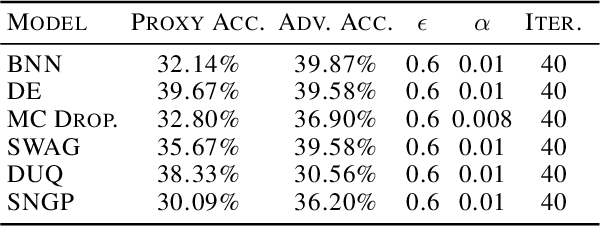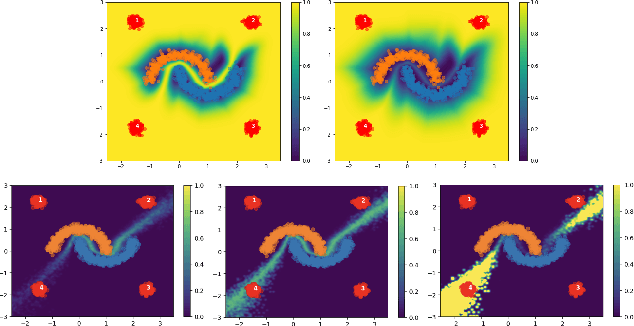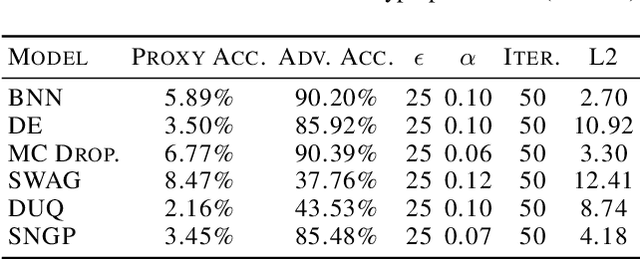Get our free extension to see links to code for papers anywhere online!Free add-on: code for papers everywhere!Free add-on: See code for papers anywhere!
Harrison Termotto
Success of Uncertainty-Aware Deep Models Depends on Data Manifold Geometry
Aug 05, 2022Figures and Tables:







Abstract:For responsible decision making in safety-critical settings, machine learning models must effectively detect and process edge-case data. Although existing works show that predictive uncertainty is useful for these tasks, it is not evident from literature which uncertainty-aware models are best suited for a given dataset. Thus, we compare six uncertainty-aware deep learning models on a set of edge-case tasks: robustness to adversarial attacks as well as out-of-distribution and adversarial detection. We find that the geometry of the data sub-manifold is an important factor in determining the success of various models. Our finding suggests an interesting direction in the study of uncertainty-aware deep learning models.
* International Conference on Machine Learning. PMLR 162 (2022)
Via
 Add to Chrome
Add to Chrome Add to Firefox
Add to Firefox Add to Edge
Add to Edge